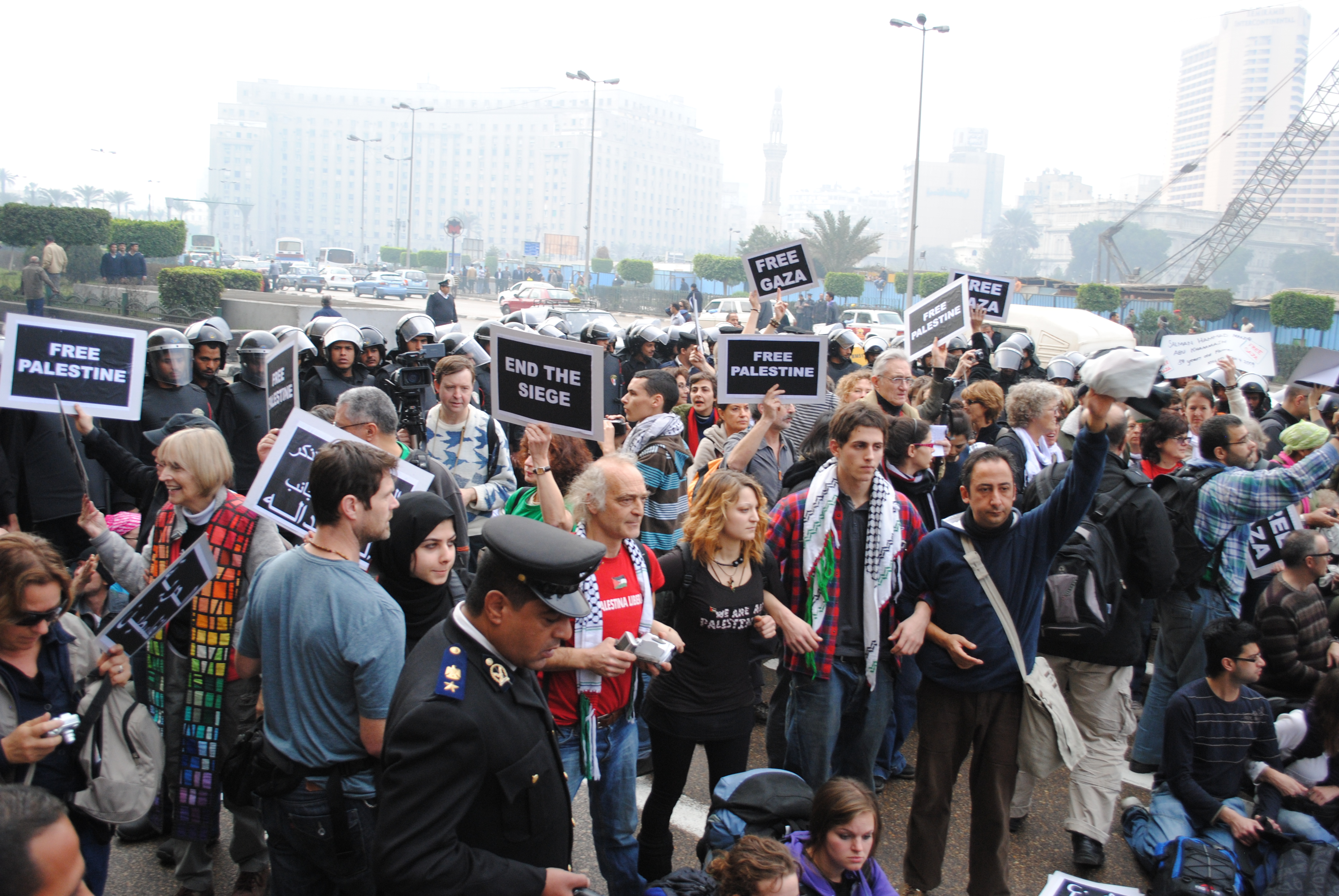We took the street at a time and place of our own choosing, we marched (briefly) before being stopped by police lines, we sat and held our space in the street for forty minutes before being ejected onto the sidewalks, where we set up our own perimeter ringed by riot police, and held that space for another six hours until we left on our own terms.
It is impossible to assemble before marching in a country where police shut down any public assembly before it starts. The advantage of the area around Tahrir Square (in front of the Egyptian Museum in downtown Cairo) is that many people can distribute themselves around the square in twos and threes without any one group being big enough to shut down. The place was crawling with uniformed and (very obvious) plainclothes police who knew the time and place — it was impossible to let all our groups know without the infromation getting back to them — but they didn’t know how it would begin.
Until two brave women stepped confidently into the crazy Cairo traffic and threw banners up to signal the start, and hundreds of us swarmed in their direction like purposeful peaceful bees. The “march” portion was pathetically short by any Western standards — it began and ended in less than 40 metres in Tahrir Square. Once stopped, most of us sat and linked arms, and the police began trying to get us out of the street. We were dragged, picked up and thrown on top on others, kicked and punched (note to self: a back-pack with lots of extra bundles tried to it gives police lots of handles to grab when they pick you up). We clung to each other as much as we could during the brief intervals as smaller and smaller groups of us remained on the street. Canadian Bob Holmes and I were the last to be bodily picked up and thrown on the sidewalk.
The packs and bundles were because we came prepared to stay put, perhaps for days. We had sleeping-bags, mats, water and food, as well as markers and tape. Within minutes of being penned in on the sidewalk, we had established a spot for medical attention, for the elderly or others needing rest, a smoking area (essential for the co-existence of Europeans and North Americans, among others), a lost-and-found (my cell-phone never reappeared, my only real casualty) and had begun posting signs re-named this section of Tahrir Square as “Free Gaza Square” (Place Gaza Libre, Piazza Gaza Libera, Midan Hurra Gaza).
The Canadians had brought a small megaphone, and we had speeches from a dozen different national delegations. Our signs in Arabic drew a lot of attention from passing Egyptians, and even some of the young conscripts in the police lines were visibly moved (their officers behind them could push them forward, but they couldn’t see their faces).



